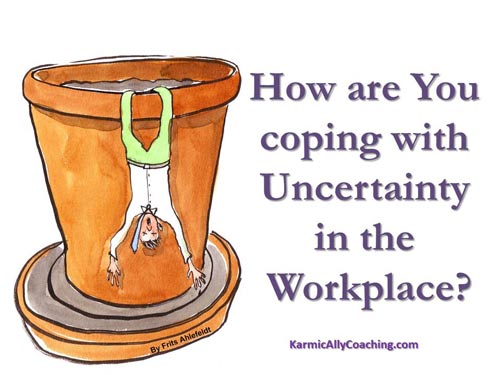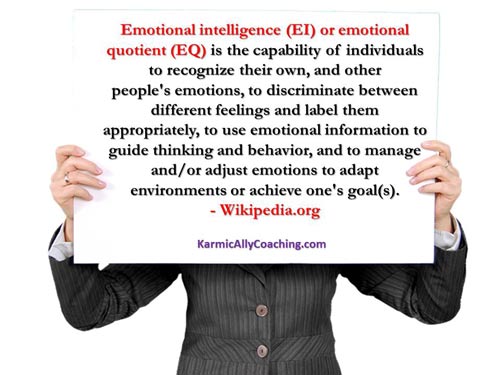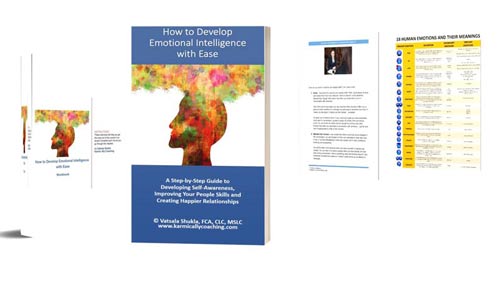This post has already been read 6620 times!

Job insecurity seems to have become a regular workplace phenomenon.
It wasn’t always like that. Or at least not as bad as that!
Once upon a time, jobs were meant for a lifetime.
You joined a workplace, worked there for 30 years or so. Then you had a retirement party where you were gifted a golden watch or pen or something equally memorable with your name engraved on it.
(My Maternal Grandfather got a golden watch after 40 years’ service with his name engraved on it. The Steel Company he worked for also threw him a farewell party.)
For sure redundancies took place during recessions and unemployment but that was a lesson in history and economic classes at school.
I admit reality bit way back in 1984 when our graduate class from the University of the West Indies had a hard time finding their first jobs.
We were supposed to have been one of the best, but recession doesn’t care.
I was fortunate that I was still in quasi student mode as a trainee Chartered Accountant, but it wasn’t that easy for others who were entering the job market. Mercifully our Alma Mater cared and went out of their way to help all of us, and we landed on our feet.
When I finally joined the workforce in the latter half of the 1980’s, like other graduates I had stars in my eyes firmly believing the world was my oyster.
The bywords in the workplace were “Promotions”, “Pay rises” and my favorite “Bonus”.
Economic cycles especially the downturns were a nuisance as were pink slips. Yet one managed to get a job provided one was willing to step out and find one.
There was stress and uncertainty but not the kind that we have today with the ongoing economic downturn.
Fast-forward to the 2010’s and the bywords in the workplace are “Layoffs”, “Budget cuts” and “Salary Freeze”. Bonus does exist but appears to be heading for extinction like the Dodo.
Restructuring and re-organizations are dreaded words.
In a LinkedIn Group Discussion, it was quite apparent that thanks to redundancies at the workplace, workloads of surviving employees had quadrupled. There was no scope for protesting or asking for better working conditions unless you wanted to join your redundant colleagues.
The stars in the eyes and World Oyster feelings have been replaced with fear, uncertainty and higher levels of stress.
Post the financial crisis of 2008 (which was the worst economic disaster since the Great Depression of 1929) which had a global impact, the economic climate is certainly not conducive for stress-free living. Job and workplace stress always increase in times of economic downturns.
Common causes of excessive workplace stress include but are not limited to:
- fear of being laid off,
- increase in overtime due to staff cutbacks,
- pressure to perform without a proportionate increase in job satisfaction and
- mixed messages from management.
Understandably stress management techniques which work during normal times may not be quite as effective although they do make a difference.
Uncertainty at the workplace can be a catalyst for change if you dare
Sometimes, this is the very catalyst that makes us take steps in a new direction which we might not have considered because we are already operating outside of our comfort zone.
It’s a good time to reassess whether you want to be proactive with a job or career change.
The Karmic Ally Coaching Quiz will help you assess where you stand. Click the image or on this link and get your copy of the quiz with a situational tip with my compliments.
Emotional Intelligence helps to cope with uncertainty in the workplace
This week, I would like to introduce and sharpen another technique in your toolkit for handling stress and particularly coping with workplace related stress – Emotional Intelligence . This is the ability to manage and use your emotions in positive and constructive ways.
It’s also an excellent tool to enhance your Executive Presence.
Using Emotional Intelligence as a stress management tool starts with recognizing when you are stressed, the stress triggers and your emotional response.
With self-awareness it is easier to self-manage your responses, behavior and reactions to the stress triggers.
If your behavior is not appropriate or you are prone to knee jerk reactions, you can modify it.
Adopt new techniques to adapt to the changing environment without internalizing stress.
Emotional Intelligence means having a sense of humor.
Laughter is a great stress buster and if you can make others join you with a good joke then that is stress relief all around. Make sure the humor is healthy and not targeted at anyone.
It also means making sure that your verbal and non-verbal responses are in synchronicity.
Remember that body language accounts for 55% of communication while what is being said makes up only 7% of communications. Aim for congruence of body language, words and tonality of voice.
This is explained further in my post on building a positive reflex for exuding Gravitas and building your Executive Presence.
There will be days when everyone is stressed out and disagreements will arise at the workplace. They can be on serious issues or trivialities.
In such situations, try to see the other person’s point of view and use your conflict management skills to the best of your abilities.
Take the initiative to keep dialogue healthy.
If necessary, walk away. Return to the issue when both parties are in a cooler frame of mind and dialogue can be resumed in a healthy manner.
So, what is the bottom-line? Focusing on those areas that you can control and the one person that you can control – You.
How are you coping with uncertainty in your workplace? What stress resilience strategies are you using?
Additional Resource:
Develop Emotional Intelligence with Ease
This is a step-by-step guide, workbook and resources to develop your Emotional Intelligence, Self-Awareness and People Skills. Show up as a Leader worth following!
Want a deeper training? Check out my course Emotional Intelligence – The Basics for Professional Success here.
Out Of Energy by Frits Ahlefeldt






 I adhere to the Certified Coaches Alliance Code of Ethics and Standards. A copy is available on request.
I adhere to the Certified Coaches Alliance Code of Ethics and Standards. A copy is available on request.
 Let's Talk through the Connect Form:
Let's Talk through the Connect Form:
The change in the workforce has been so swift and unpredictable that it caught many off guard. Overnight, jobs were outsourced or made obsolete. When I was teaching, I would be working with students on their career choices. It came as a real shock when they learned that people in the workforce were already making at least 3 career changes over their lifetime. Actually, some of the numbers were as high as 11 career changes. We need to accept that economies worldwide will be radically changing and that we need to think about flexible skills and be open to new opportunities.
I remember that time, Joyce. So-called non-essential staff were laid off and then companies were hiring temps to do those jobs because it was more cost effective to the company. One of my friends who had done a lot in marketing a Big 4 firm in a new market got laid off but there, the local partners had a conscience and while they had to comply with high command located in USA, they rehired her on an assignment basis. My friend has gone on to do a lot of other things that she wouldn’t have and is a success but I remember those days when she’d be in the office till 11 pm slogging away while her husband waited in the office visitors room and then told she was laid off. Thank God for transferable skills.
So long since I have been in a ‘workplace’ other than my own home and studio. I do relate though that change is something we all face – i have been through it big time this year and out of embracing change we can become so much better a person xx
Accepting that change is inevitable enables us to plan for a better result and future, Suzie. If it makes us a better person, then change is the right catalyst!
Hi, Vatsala
Change is unavoidable. we have to wait and see the changes are positive ones or negative ones in general.
We can’t control others or the events unfolded in front of us, but the only thing we can control are ourselves. You are so right on that.
Have a lovely weekend!
Stella Chiu
Thanks for your wise insight, Stella. It’s our perspective about change that guides how we respond to it, especially for circumstances outside of our control. Have an awesome weekend too!
I have based my entire approach to life on rebelling against the notion of “job for life”. My father worked for the same company 45 years and it sucked the very life out of him. Oh, he had security, vacation, health benefits, etc., but he lost himself in the process doing the same thing day after day. I swore I’d never follow that path, and haven’t so I’ve never experienced the stress of job insecurity. There is no question it’s not a path for everyone, you have to have unwavering belief that no matter what challenges life may throw your way, you will be okay. But I think that’s where my lifelong passion for developing resilience prepared me for the journey.
I hear you, Marquita! I saw my Dad do the same at his job for 36 years but he enjoyed his work and did a lot to promote India and our culture, which became evident from the flood of condolence letters we received from around the world and the goodwill that he left behind for his family.
Having said that, some of us are free spirited and really can’t stay in 1 job forever unless it stimulates us. Some of us need change to thrive and if we have an entrepreneurial mindset, then that is a path to be explored.
Thanks for sharing your valuable insight and perspective.
I’ll see your Uncertainty in the workplace statement and raise it to Uncertainty in the world can be a catalyst for change. Certainly now, in the US, I’m finding the only place I can stand is in the invitation and opportunity to be a force for good and positive change in the shitstorm of uncertainty on every level.
Thanks for taking your usual positive encouraging stand. Sharing.
Thanks for giving this post and the message a wider meaning Sue. I love your insights. Back in India, the demonetization drive has found a new solution in encouraging people to use different apps to make payments for smaller amounts. The way we do transactions may just become more digital! There is a silver lining to a dark cloud after all.
Thanks for your thoughtful post. Xoxo
Delighted you liked it, Natasha.
I love that you dare say that this ‘misfortune’ can be the catalyst for something wonderful to happen. I believe it to be true, and I also believe that thinking that way tends to create those best results we are all looking for.
It’s the mindset that makes the best results in a situation happen, Reba. You are so correct!